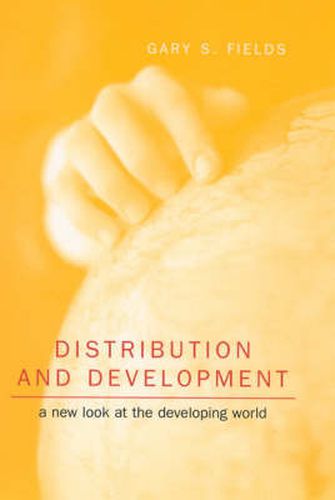Readings Newsletter
Become a Readings Member to make your shopping experience even easier.
Sign in or sign up for free!
You’re not far away from qualifying for FREE standard shipping within Australia
You’ve qualified for FREE standard shipping within Australia
The cart is loading…






Most of the world’s people live in developing economies, as do most of the world’s poor. The predominant means of economic development is economic growth. In this book Gary Fields asks to what extent and in what circumstances economic growth improves the material standard of living of a country’s people. Most development economists agree that economic growth raises the incomes of people in all parts of the income distribution and lowers the poverty rate. At the same time, some groups lose out because of changes accompanying economic growth. Fields examines these beliefs, asking what variables should be measured to determine whether progress is being made and what policies and circumstances cause some countries to do better than others. He also shows how the same data can be interpreted to reach different, even conflicting, conclusions. Using both theoretical and empirical approaches, Fields defines and examines inequality, poverty, income mobility, and economic well-being. Finally, he considers various policies for broad-based growth.
$9.00 standard shipping within Australia
FREE standard shipping within Australia for orders over $100.00
Express & International shipping calculated at checkout
Most of the world’s people live in developing economies, as do most of the world’s poor. The predominant means of economic development is economic growth. In this book Gary Fields asks to what extent and in what circumstances economic growth improves the material standard of living of a country’s people. Most development economists agree that economic growth raises the incomes of people in all parts of the income distribution and lowers the poverty rate. At the same time, some groups lose out because of changes accompanying economic growth. Fields examines these beliefs, asking what variables should be measured to determine whether progress is being made and what policies and circumstances cause some countries to do better than others. He also shows how the same data can be interpreted to reach different, even conflicting, conclusions. Using both theoretical and empirical approaches, Fields defines and examines inequality, poverty, income mobility, and economic well-being. Finally, he considers various policies for broad-based growth.